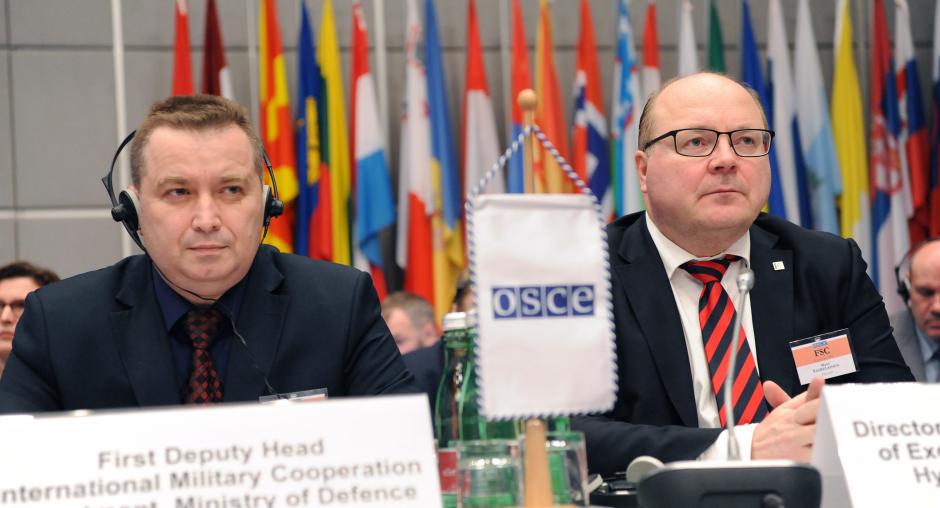Transparent and reliable military information vital for addressing key security challenges, say participants of OSCE Forum for Security Co-operation

VIENNA, 31 January 2018 - The importance of transparent and reliable military information for countering the deliberate or undeliberate misinterpretation of data on military activities that may heighten tensions between participating States, and even escalate protracted conflicts, was emphasized at today’s OSCE Forum for Security Co-operation (FSC) meeting in Vienna, held under Slovakia’s Chairmanship.
“The unprecedented amount of easily accessible information on military activities from both official state sources and unofficial ones increasingly complicates the distinction between credible and non-credible sources of reliable military information,” said Ambassador Radomír Boháč, Chairperson of the Forum and Permanent Representative of Slovakia to the OSCE. “In addition to that, in recent years we have seen a surge in dubious sources that deliberately disseminate wrong information on military activities, developments and force postures.”
He said that the OSCE’s Structured Dialogue process led by Austria’s OSCE Chairmanship last year had confirmed that the most effective remedy for addressing these risks is a confidence- and security-building mechanism, which, by providing participating States with access to official and reliable sources, fosters transparency and addresses the issue of misinterpretation and wrong information. Boháč added that the Vienna Document was a key framework in this regard.
Matti Saarelainen, Director of the Finland-based European Centre of Excellence for Countering Hybrid Threats, said that the changing face of conflict made the need for reliable military information sharing vital.
When addressing multidimensional threats, he suggested, “We need to map vulnerabilities within our societies, create reliable all-domain situational awareness and improve our resilience and response. All levels of government, local, regional and central, have to actively counter hybrid threats.”
Colonel Valery Revenko, First Deputy Head of the International Military Co-operation Department of Belarus' Defence Ministry shared his country’s approaches to military transparency and the exchange of military information, including in the context of the voluntary invitation to observe the notifiable military exercise Zapad 2017, conducted on the territory of Belarus in September last year.
He called for more workshops on mapping trends in military force postures and military exercises, with a view to developing best practices and bringing national approaches to a common denominator.
Robin Mossinkoff, Senior FSC Support Officer at the OSCE Conflict Prevention Centre, reminded participating States of their commitments to exchange military information.
“The data or ‘information’ OSCE participating States wish to exchange is the product of a decades-long, deliberate and well thought-out process, with many intermediate steps,” he said. “The Conflict Prevention Centre can only do so much to assist participating States in their need for transparency and openness. What we can offer, however, is to make sure that the exchanged information is given to you in a more coherent manner.”
